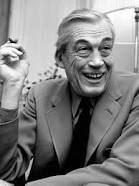
The African Queen Page #7
- PG
- Year:
- 1951
- 105 min
- 1,334 Views
right down near the waterline,
so when we rammed you...
And where is the African Queen?
She sank in the storm.
But how did you get onto the lake?
We came down the Ulanga,
the Bora, you call it down here.
- That's impossible.
- Nevertheless.
But everyone knows
the river is unnavigable.
That may be.
We came down it, though,
didn't we, Charlie?
And in the African Queen.
Would you hang us together, please?
- Now, wait a minute. Hey, Captain.
- Yes?
- Will you grant us a last request?
- What is it?
- Marry us.
- What?
We want to get married.
Ship captains can do that, can't they?
- Yeah.
- Why, Charlie, what a lovely idea.
What kind of craziness is this?
Come on, Captain,
it'll only take a minute,
and it'll mean such a lot to the lady.
Very well, if you wish it absolutely.
What are the names again?
- Charles.
- Rosie. Rose.
Do you, Charles, take this woman
to be your lawful wedded wife?
Yes, sir.
Do you, Rose, take this man
to be your lawful wedded husband?
I do.
By the authority vested in me
by Kaiser Wilhelm II,
I pronounce you man and wife.
Proceed with the execution.
Hey, what happened?
We did it, Charlie! We did it!
But how?
Well, what do you think?
You all right, Mrs. Allnut?
Wonderful. Simply wonderful.
And you, Mr. Allnut?
Pretty good for an old, married man.
I'm all twisted around, Charlie.
Which way is the east shore?
The way we're swimming, old girl.
There was a bold fisherman
Set sail from off Pimlico
To catch the bold picky
And the gay mackerel
But when he got off Pimlico
The wind did begin to blow...
Translation
Translate and read this script in other languages:
Select another language:
- - Select -
- 简体中文 (Chinese - Simplified)
- 繁體中文 (Chinese - Traditional)
- Español (Spanish)
- Esperanto (Esperanto)
- 日本語 (Japanese)
- Português (Portuguese)
- Deutsch (German)
- العربية (Arabic)
- Français (French)
- Русский (Russian)
- ಕನ್ನಡ (Kannada)
- 한국어 (Korean)
- עברית (Hebrew)
- Gaeilge (Irish)
- Українська (Ukrainian)
- اردو (Urdu)
- Magyar (Hungarian)
- मानक हिन्दी (Hindi)
- Indonesia (Indonesian)
- Italiano (Italian)
- தமிழ் (Tamil)
- Türkçe (Turkish)
- తెలుగు (Telugu)
- ภาษาไทย (Thai)
- Tiếng Việt (Vietnamese)
- Čeština (Czech)
- Polski (Polish)
- Bahasa Indonesia (Indonesian)
- Românește (Romanian)
- Nederlands (Dutch)
- Ελληνικά (Greek)
- Latinum (Latin)
- Svenska (Swedish)
- Dansk (Danish)
- Suomi (Finnish)
- فارسی (Persian)
- ייִדיש (Yiddish)
- հայերեն (Armenian)
- Norsk (Norwegian)
- English (English)
Citation
Use the citation below to add this screenplay to your bibliography:
Style:MLAChicagoAPA
"The African Queen" Scripts.com. STANDS4 LLC, 2025. Web. 12 Feb. 2025. <https://www.scripts.com/script/the_african_queen_2280>.







Discuss this script with the community:
Report Comment
We're doing our best to make sure our content is useful, accurate and safe.
If by any chance you spot an inappropriate comment while navigating through our website please use this form to let us know, and we'll take care of it shortly.
Attachment
You need to be logged in to favorite.
Log In